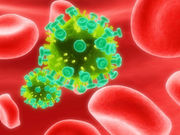Resistance affects almost two-thirds of those taking tenofovir in sub-Sahara Africa
FRIDAY, Jan. 29, 2016 (HealthDay News) — HIV resistance to the antiretroviral drug tenofovir (Viread) is common, according to a study published online Jan. 28 in The Lancet Infectious Diseases.
Investigators looked at 1,926 HIV patients from 36 countries with treatment failure between 1998 and 2015.
Tenofovir-resistant HIV strains were found in 57 percent of patients in sub-Sahara Africa. The researchers also found that, of 700 individuals with tenofovir resistance, 83 percent had cytosine analogue resistance (M184V/I mutation), 78 percent had major non-nucleotide reverse-transcriptase inhibitor resistance, and 65 percent had both.
“Tenofovir is a critical part of our armamentarium against HIV, so it is extremely concerning to see such a high level of resistance to this drug,” study author Ravindra Gupta, M.D., Ph.D., from the department of infection and immunity at University College London, said in a university news release. “It is very potent drug with few side effects, and there aren’t any good alternatives that can be deployed using a public health approach. Tenofovir is used not only to treat HIV but also to prevent it in high-risk groups, so we urgently need to do more to combat the problem of emerging resistance.”
Several authors disclosed financial ties to the pharmaceutical industry.
Copyright © 2016 HealthDay. All rights reserved.








